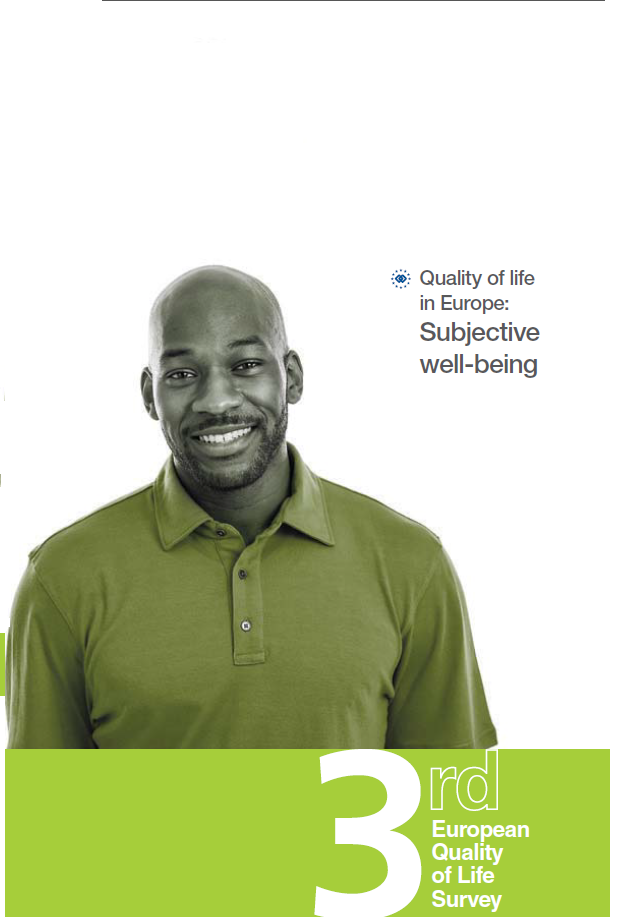
Since 2003, Eurofound’s European Quality of Life Survey (EQLS) has asked Europeans how they feel about their lives – how happy and satisfied they are generally, and how they rate particular aspects of their lives, such as their health, the state of their family lives, and the condition of the societies they live in.
A recently published analysis of the findings of the third wave of the survey from 2011–2012 seeks to discover what promotes subjective well-being among European citizens, and the risk factors that make it less likely to be realised. The report finds that the key determinants of subjective well-being are freedom from material deprivation, good health, freedom from a limiting disability, a reasonable work–life balance, satisfaction with public services and good social relationships.
Policy responses
Drawing on this, the report concludes that the well-being of Europeans would benefit from a number of targeted policy responses:
- a focus on efforts to tackle poverty, and a recognition that material deprivation encompasses such elements as being unable to engage in social and leisure activities;
- integrating people with disabilities more fully into society;
- reducing working hours and assisting people achieve a better work–life balance;
- maintaining the quality of public services in the face of austerity – particularly in southern Europe;
- assisting those who are without close support – this might be support around the house, or having someone to talk to, whether facilitated directly by the state or through the non-profit sector.
Impact of the crisis
Between the second and third waves of the survey – in 2007 and 2011 – Europe entered into a financial crisis that continues to reverberate socially, economically and politically. The report examines the impact that the crisis has had on quality of life in Europe – specifically, how Europeans feel about their lives. It concludes that, overall, well-being has stagnated during the crisis.
While levels life satisfaction in fact rose slightly between 2007 and 2011, Europeans overall feel less happy, and they also believe that there is more social exclusion than previously.* However, the increase in life satisfaction was experienced only in certain countries and regions, and it was enjoyed by wealthier citizens, in the highest income quartiles; by contrast, the biggest falls in well-being/satisfaction were experienced by people in the lowest income quartile. The report highlights the risk to social cohesion should these trends be allowed to continue unaddressed.
The full report Quality of life in Europe: Subjective well-being is available online.
* Although they sound similar, the concepts of life satisfaction and happiness are in fact different. 'Life satisfaction' refers to an evaluation of life as a whole; 'happiness' is more emotionally driven and less determined by standard of living.